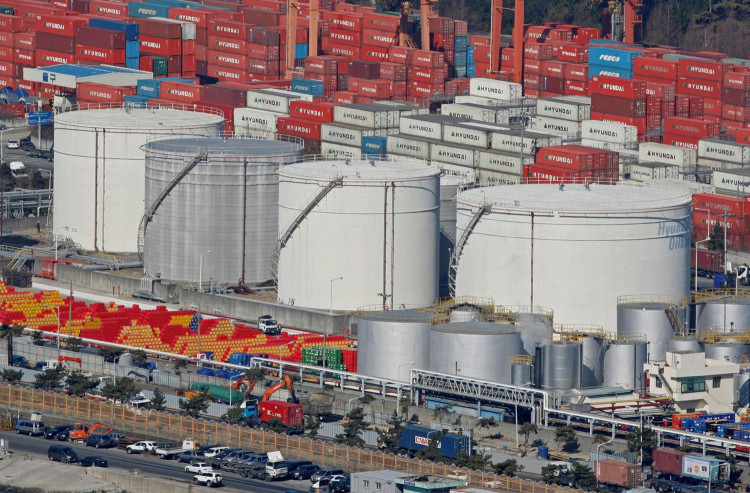South Korea is on course to surpass Canada as the leading client of America's crude oil this year as a host of large price cuts to alternative inventory, a more favorable refining economics and discounts on import fees prove too enticing to refuse for major refiners.
Crude orders by South Korea has grown around 200 percent in the first three quarters last year from a year earlier to 142.4 million barrels, figures from the Energy Information Agency showed, marking by far the highest growth pace among premier destinations for the US commodity, and positioned South Korea just under 10 million barrels next to Canada.
With the US poised to emerge as a net supplier of crude for the first time in as many years, the Asian region is projected to be a key hub for additional imports, especially as oil players in the United Kingdom have limited production for shale.
The fifth largest oil importer in the world, Seoul has purchased over 375,000 barrels per day of US oil last year, having its slice of Korean imports to almost 14 percent.
Customers paid on average $1.70 a barrel less compared to crude from a leading exporter, Saudi Arabia, as shown on Reuters calculations based on data provided by the government-controlled entity, Korea National Oil Corporation.
In the first three months last year, US crude deliveries to South Korea is projected at 38.57 million barrels, increasing almost 20 percent from a year ago, Refinitiv figures revealed.
West Texas Intermediate, Eagle Ford and WTI Midland crudes have been among the most in-demand US commodities in South Korea, along with medium-sour Mars crude, KNOC disclosed.
Meanwhile, South Korea's Kospi settled down almost 4 percent late Monday, its worst session since October 2018. The Dow INDU futures, on the other hand, also fell almost 400 points or 1.5 percent. S&P 500 futures also plunged 1.5 percent, and so did the Nasdaq Composite futures at 1.8 percent.
Elsewhere, Hong Kong's Hang Seng fell 1.7 percent, while China's Shanghai Composite dropped 0.4 percent. Japan markets were closed Monday for a holiday.
Oil futures fell sharply, as well. US futures were down 2.4 percent at $52.14 per barrel. Brent crude, a global oil standard, shed 2.5 percent and was the last trading at $57.06 per barrel. The Shanghai crude futures, China's oil benchmark, shrunk 4.6 percent to 393.3 yuan per barrel.
In a related development, Korea Customs Service figures show South Korea's imports from Iran was nearly cut to $2 billion in the final quarter of 2019 from $4 billion in 2018. Data also disclose South Korea's exports to Iran dropped to $282 million from $2.4 billion in the same period.






